The risk manager can be something of a lone wolf in an organisation – operating alone, often misunderstood. Thankfully, risk managers know where to find each other. Here’s to another year of collaborating, supporting and learning from our fellow loners.
In the final stages of editing a magazine, you read through all the articles again, one by one.
You check for errors, make sure the layout works, and have one final look at everything before you send it out into the world.
However, I like to do another cover-to-cover read, just before I write my editor’s letter.
Until then, everything I write, edit, proof or commission is all done in isolation. I plan the content, of course, but I never really know how it will all hang together until the end.
Usually, I’ve got a good idea what the common themes to pull out are going to be. But every now and then, I spot something totally unexpected.
On this occasion, that unexpected theme is loneliness.
There is no article here specifically about loneliness, nor had I even thought of risk management as a particularly lonely industry. However, two risk managers, interviewed on different topics, by different journalists, both referenced how isolating their roles can be.
On page 16, Charlotte Hedemark, FERMA’s new president, states: “The role of the risk manager can be quite a lonely one - particularly if you are the only person in that role in your organisation.” She goes on to explain that this is a driving force behind some of her ambitions heading the association.
Then, on page 32, we have an incredible case study from two risk managers on the ground during the Lindt Cafe attack in Sydney. Despite working at competing companies, the two collaborated throughout the crisis.
“We want to make sure that by working together, we all feel a little less alone.”
In fact, there was a series of calls between risk managers across the city to exchange knowledge. Kevin Bates, group head of risk and insurance at Lendlease, says that the life of the risk manager can be lonely, but that “you need to extend your professional external relationships to people in your industry who you implicitly respect and trust”.
It is perhaps not so surprising that managing risks and loneliness sometimes go hand in hand.
For one thing, many organisations have just one person with risk in their job title (indeed some have none, with various people in silos working on their own areas). Secondly, the weight of the responsibility risk managers carry can be isolating. Thirdly, risk managers are often perceived to be naysayers or policemen - a lone voice saying ‘stop’ when businesses want to say ‘go’.
This latter point must be challenged (and frequently is in the pages of this magazine) but as long as the stereotype remains, it will add to the feeling of loneliness.
This may feel like a sombre note on which to end the year. But to look at it another way, this issue also demonstrates how those involved in managing risk are coming together. This includes working with insurers and
loss adjusters to understand pinch points (see our case study on page 34), getting board support to launch a new risk function (in our case study on page 30) and sharing with their contemporaries at industry events (we cover the FERMA and Parima conferences from page 36).
It also ties in nicely with changes to StrategicRISK which regular readers may have already noticed. We’ve made case studies (pages 30-35) a central pillar of each issue, shining a light on best practice and allowing our readers to learn from their peers.
Our Spotlight series (pages 22-29) examines risk management tools, sector-specific risks, country-related threats, and individual risks in turn, speaking to senior people within organisations to understand the latest in managing, mitigation and transferring these exposures. And our opinion section (pages 7-11) is packed with insights from risk experts sharing the latest thinking.
Going into 2024, my vision is for StrategicRISK to continue to be the voice of the risk management profession.
We want to hear from people who are successfully managing exposures or improving decisionmaking, whatever their job title. We want to look beyond news headlines and bring you analysis that helps you to do your job better. And we want to make sure that by working together, we all feel a little less alone.





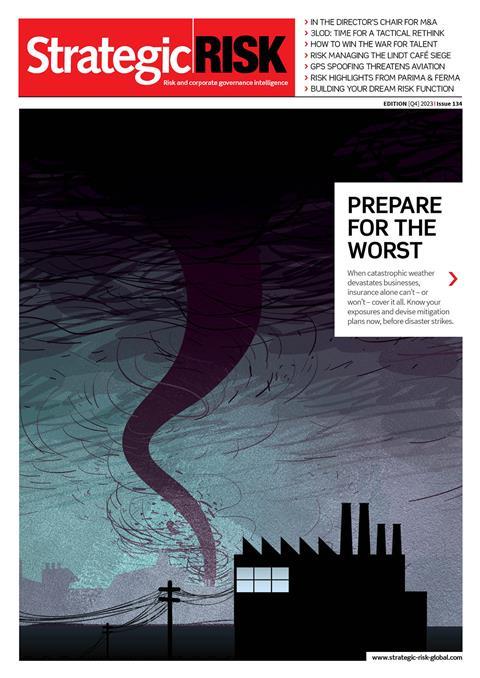


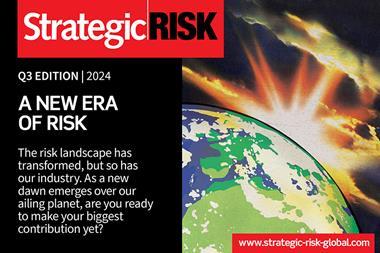
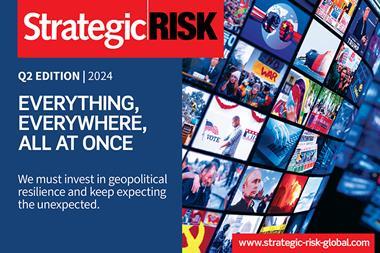



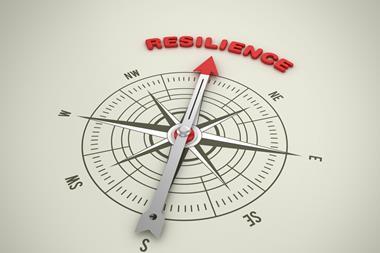

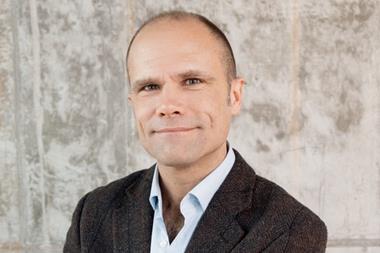




No comments yet